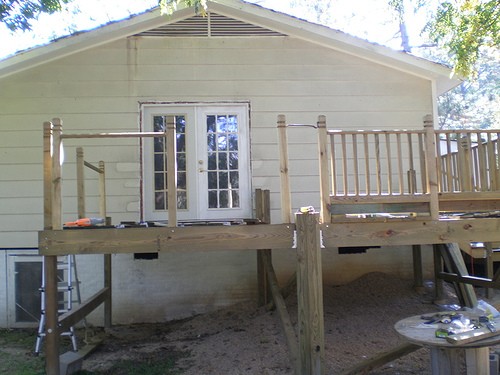VA Appraisal 8 Things You Must Know
Post on: 16 Август, 2015 No Comment

8 Things You Must Know About the VA Appraisal
It will happen. We promise you.
If you’re a military homebuyer or a military-friendly buyer’s agent, sooner or later, you’re going to bump heads with the VA appraisal process.
The VA appraisal is a unique evaluation of properties financed by VA loans. And with its special (sometimes quirky) guidelines, the VA appraisal is worth careful study by buyers and agents alike.
Need a study guide along the way? Let’s take a look at eight things buyers and agents must understand about the VA appraisal.
Knowing what to expect from the VA appraisal process leads to a problem-free and efficient home purchase.
1. It’s mandatory.
You’ll have a lot of choices to make on your homebuying quest. But if you’re using a VA loan, you can’t choose to opt out of the VA appraisal.
Every home purchased with a VA loan must be evaluated by a VA-certified appraiser. Your VA lender requests and schedules the appraisal, and informs you once the appraisal report is complete.
2. The VA appraisal has 2 purposes.
The VA appraiser has two tasks on hand:
- Determine the home’s fair market value. Your lender needs to know the market value for the property in question. This value helps buyers ensure they’re not overpaying for a property, and helps lenders ensure they’re not putting borrowers in an “upside-down” mortgage from the start. The appraiser uses current market data and recent sales to determine this value for each property.
- Ensure the property meets the VA’s Minimum Property Requirements (MPRs). The VA has a unique list of MPRs to which all properties must adhere. Those broad guidelines ensure that homes purchased by veterans are safe and move-in ready.
3. The VA appraisal fee equals…
Buyers will usually need to pay for the appraisal upfront. That fee varies by state of purchase and type of home (single-family vs. condo vs. manufactured home), but expect about $500. You can try and recoup this fee at closing as part of your negotiations with the seller.
Appraisal delays are common, so plan accordingly.
4. It’s typically done in 10 days. But plan for more.
VA appraisals are completed in under 10 days on average. But its a good idea to plan for more just in case.
The VA issues appraisal “timeliness requirements” for each state, but they’re more guidelines than actual requirements. Since there’s no guarantee your appraisal will be completed by a certain date, allow at least 10 additional days of wiggle room in your closing timeline.
5. The VA appraisal is not a guarantee that your home is perfect.
The VA appraiser ensures homes are:
- Safe
- Structurally sound
- Sanitary

Notice the word “perfect” is not on that list. It’s never been the VA appraiser’s responsibility to promise you’re buying a blemish-free property. The home does need to meet basic livability standards, but make no mistake: Costly repairs could pop up any time after you sign those closing documents.
And that’s why you need to also remember the following point:
6. The VA appraisal is not a home inspection.
The VA appraiser will carefully measure your property against MPR criteria. But a professional home inspector typically performs a much more in-depth, comprehensive investigation.
While the VA appraiser rarely ventures outside the bounds of the MPR checklist, a good home inspector will thoroughly describe each and every deficiency noted on the property. The inspector documents findings with photos, makes recommendations, and sometimes estimates the cost of needed repairs.
The professional home inspection report is an excellent tool for renegotiating a purchase contract, and should never, EVER be skipped. Some buyers prefer to have the home inspection first before deciding whether to move forward with a VA appraisal.
7. The VA appraisal could send your purchase in a different direction.
With good preparation and a little luck, your VA appraisal is completed quickly and without complications.
But it’s important to recognize that the results of the VA appraisal could send a purchase down a different track. Consider these potential challenges:
- The property doesn’t meet MPR criteria. If the appraiser says that repairs must be made to bring the home up to MPR standards. buyers have a few options to consider. They can negotiate with the sellers to make the repairs; they can look into completing the repairs themselves; or they can walk away from the purchase.
- The appraisal value falls short of the loan amount. If the appraisal value is below the target loan amount, buyers again have a choice to make. Buyers can:
- Ask the seller to lower the purchase price
- Make up the difference in cash
- Walk away from the purchase
- Petition the VA for another appraisal (known as a “Reconsideration of Value ”)
8. The VA appraisal doesn’t have to be intimidating.
Fixer-uppers are not currently eligible for VA financing.
Even though the VA appraisal can have a drastic impact on a home purchase, there’s no need to fear this process, unless you’re unprepared.
Poor knowledge sets a potential VA home buyer up for disaster. If you’re planning on any of the following:
- Purchasing a fixer-upper
- Buying farm land
- Purchasing a vacation home
- Buying an ineligible investment property
- Buying without a real estate agent
- Working with an inexperienced VA lender
…you could be in for a rough road. But if you’re familiar with VA MPR criteria, youre working with a knowledgeable real estate agent and have partnered with an VA approved lender get set for a rewarding venture. You’re well on your way to the plethora of benefits afforded by VA home loans, including 100 percent financing, no private mortgage insurance, flexible credit standards and low closing costs.














